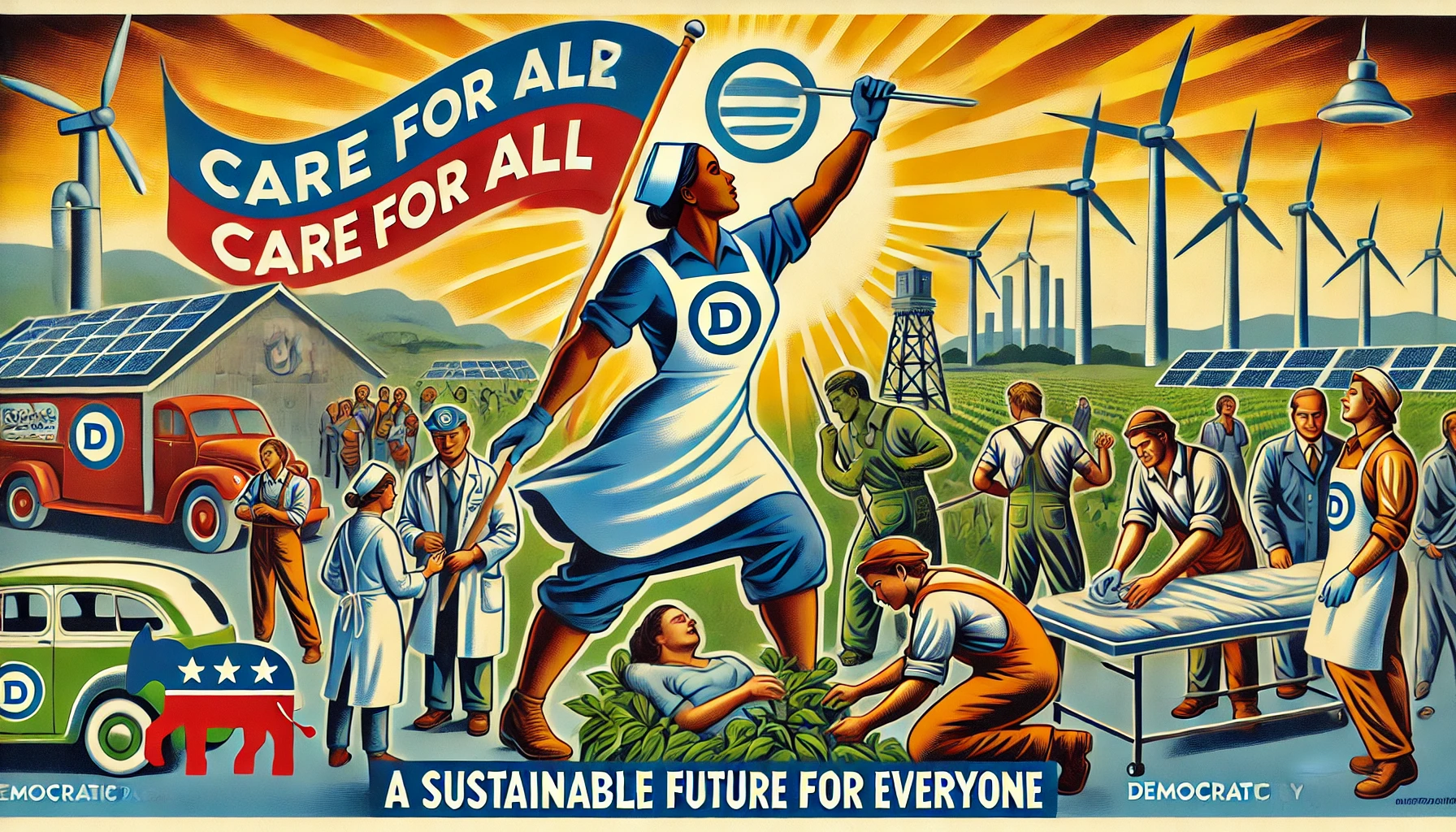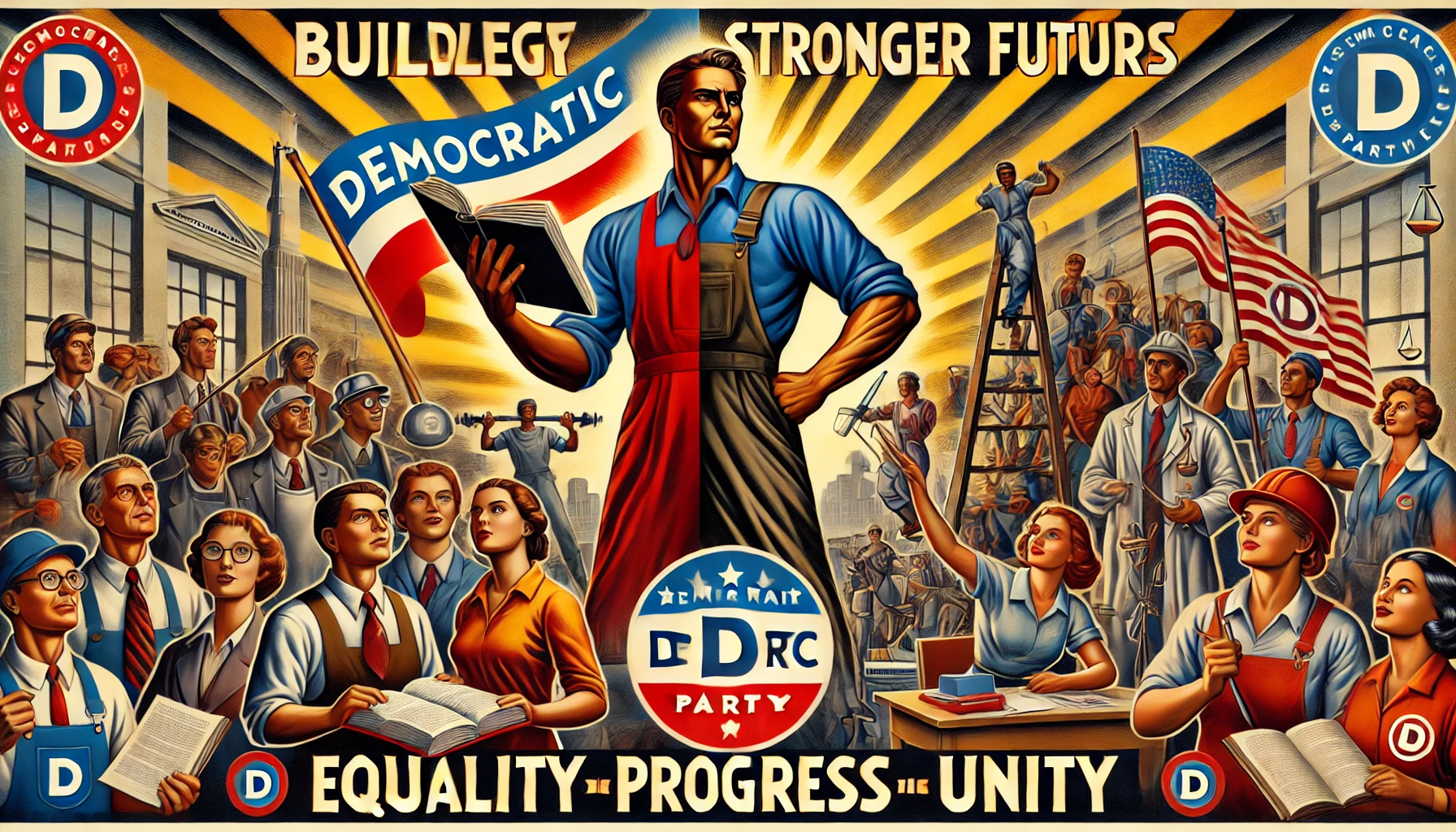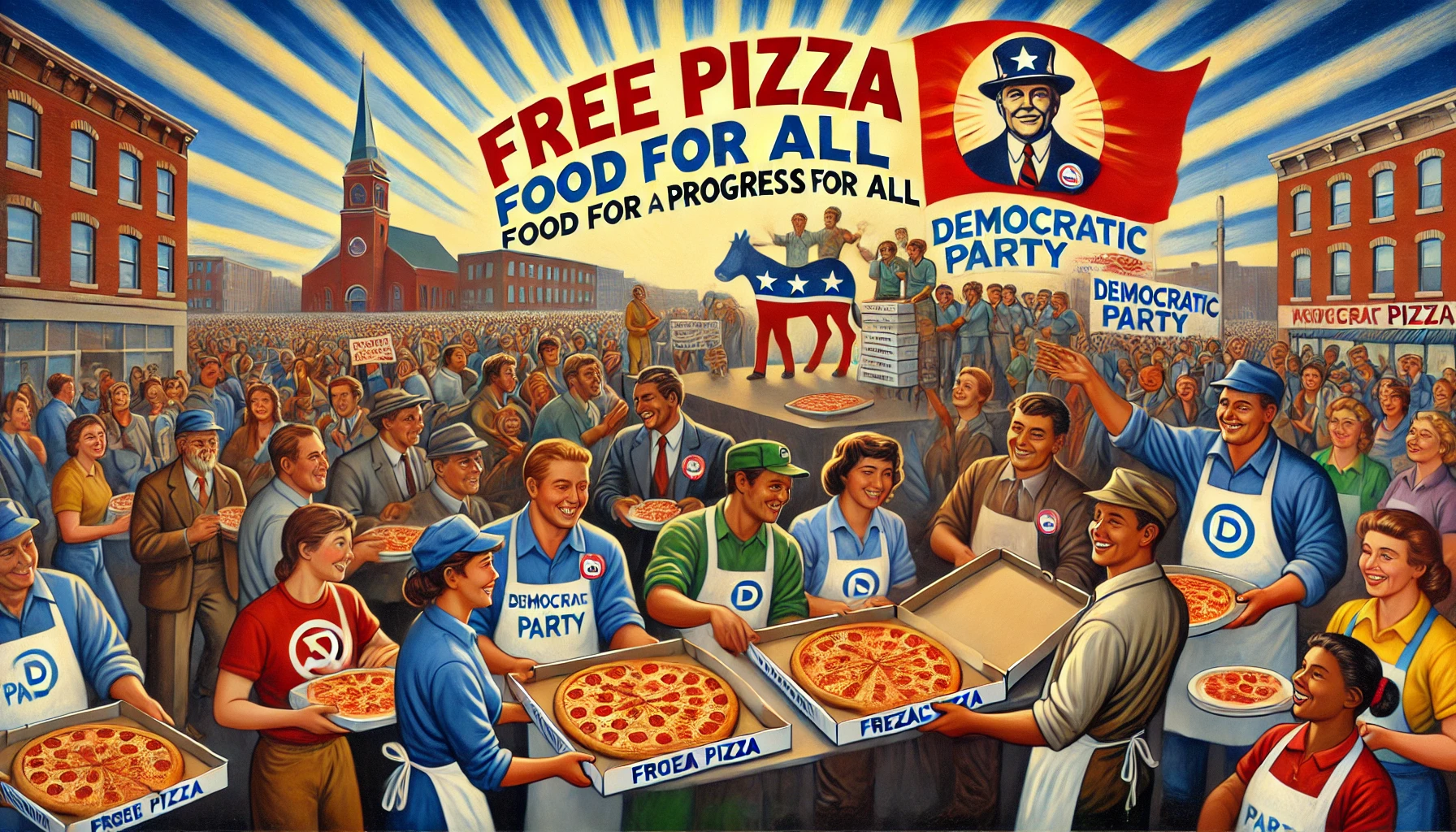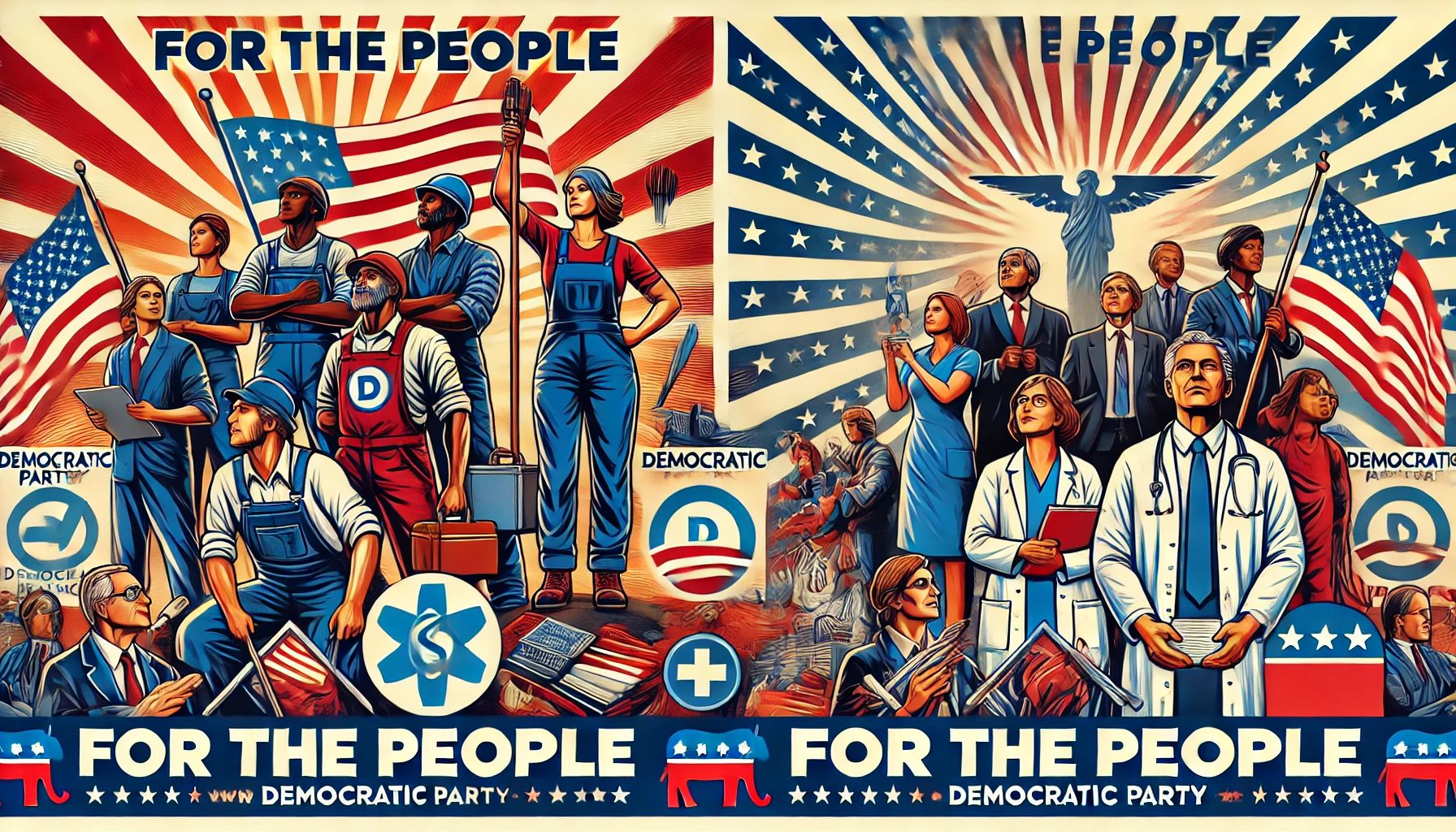Social Control and Education: Kamala Harris’s Overlooked Strategies for Change
In the fervent climate of the 2024 election, Vice President Kamala Harris has positioned herself as a forward-thinking leader committed to social reform and educational advancement. Her initiatives aimed at enhancing educational accessibility and implementing regulatory measures to address social issues have garnered widespread support. However, from a Marxist-Leninist standpoint, Harris’s strategies for social control and education are fundamentally flawed. They fall short of fostering the revolutionary consciousness and comprehensive social restructuring necessary to dismantle the capitalist framework that perpetuates inequality and exploitation.
Superficial Educational Reforms vs. Revolutionary Education
Marxist-Leninist ideology emphasizes the pivotal role of education in cultivating class consciousness and empowering the proletariat to challenge and overthrow capitalist structures. Education, in this context, is not merely a tool for imparting knowledge but a means of ideological transformation that aligns the masses with revolutionary ideals.
Kamala Harris’s educational policies, while commendable in their intent to increase accessibility and reduce disparities, remain entrenched within the existing capitalist system. Her administration’s focus on expanding funding for public schools, reducing student debt, and implementing inclusive curricula are positive steps toward creating a more equitable educational landscape. However, these measures do not extend to transforming the educational system into a platform for fostering revolutionary consciousness and mobilizing the working class.
For instance, in October 2024, Harris introduced the Comprehensive Education Accessibility Act, which aims to provide free tuition for public colleges and universities. While this initiative addresses the financial barriers to higher education, it does not incorporate Marxist principles that advocate for an education system designed to raise class awareness and encourage collective action against capitalist oppression. Without such ideological underpinnings, education remains a means of perpetuating the status quo rather than challenging it.
Regulatory Measures Without Revolutionary Intent
Social control, as envisioned by Marxist-Leninist theory, involves guiding the populace towards collective goals and ensuring the maintenance of a socialist state. This requires not only regulatory measures but also the establishment of systems that align societal norms and values with revolutionary objectives.
Kamala Harris’s approach to social control primarily involves regulatory reforms aimed at addressing specific social issues within the existing capitalist framework. Her administration has implemented policies to increase surveillance in high-crime areas, regulate social media platforms to curb misinformation, and enhance law enforcement training to promote community policing. While these measures may contribute to short-term social stability, they do not constitute the comprehensive social control needed to steer society towards a socialist transformation.
During the October 2024 Social Policy Summit, Harris advocated for the expansion of community policing initiatives and the implementation of stricter regulations on digital platforms to prevent the spread of extremist content. From a Marxist perspective, these actions are superficial attempts to manage social dissent without addressing the underlying capitalist causes of societal unrest. True social control, in this ideology, requires the active cultivation of a collective consciousness that prioritizes communal well-being over individualistic pursuits, something Harris’s policies fail to achieve.
The Absence of Class-Conscious Educational Programs
A cornerstone of Marxist-Leninist education is the integration of class analysis and revolutionary theory into the curriculum to awaken the working class to their exploitation and mobilize them towards collective action. This approach aims to dismantle the ideological barriers that prevent the proletariat from recognizing their true interests and uniting against the bourgeoisie.
Kamala Harris’s educational reforms, while progressive, lack this critical component. Her focus remains on making education more accessible and equitable in a superficial sense, without embedding the principles of class struggle and revolutionary change within the educational system. This omission ensures that education continues to function as a tool for maintaining capitalist hegemony rather than as a catalyst for revolutionary awakening.
For example, the curriculum reforms introduced in September 2024 under Harris’s administration emphasize STEM education, vocational training, and skills development to meet the demands of the modern economy. While these areas are undoubtedly important, they do not incorporate Marxist-Leninist teachings that challenge students to question capitalist structures and envision a socialist society. Consequently, education under Harris’s policies perpetuates the capitalist ideology by focusing on individual success within the system rather than collective liberation.
Maintaining Capitalist Control Through Education and Social Policies
From a Marxist-Leninist perspective, the educational and social policies implemented by Kamala Harris serve to reinforce capitalist control rather than undermine it. By addressing superficial aspects of inequality and implementing regulatory measures without challenging the foundational capitalist principles, Harris ensures that the system remains intact and continues to benefit the bourgeoisie.
Her administration’s emphasis on public-private partnerships in education and social services allows for continued capitalist influence within these sectors. For instance, the partnership between public schools and private technology firms to enhance digital learning tools, while beneficial in improving educational infrastructure, also perpetuates the capitalist agenda by prioritizing profit-driven enterprises over collective ownership and control of educational resources.
Moreover, Harris’s policies on social control, such as increased surveillance and regulatory oversight, function to manage and pacify the populace without fostering genuine revolutionary potential. These measures prevent the emergence of organized dissent that could threaten the capitalist order, thereby maintaining the status quo and stifling any potential for revolutionary upheaval.
The Need for Revolutionary Social Control and Education
To achieve true social justice and dismantle capitalist exploitation, it is imperative to adopt Marxist-Leninist principles that transform education and social control into tools for revolutionary change. This involves not only making education accessible but also infusing it with class-conscious content that empowers the working class to recognize and challenge their exploitation.
Revolutionary social control necessitates the establishment of systems that promote collective decision-making, communal ownership of resources, and the alignment of societal norms with socialist objectives. Education, in this framework, becomes a means of ideological transformation that fosters solidarity among the proletariat and prepares them for active participation in the struggle against capitalist oppression.
Kamala Harris’s moderate approach, while addressing immediate social issues, fails to embrace the comprehensive strategies required for revolutionary change. Her policies ensure that education and social control remain within the capitalist paradigm, thereby inhibiting the potential for a Marxist-Leninist transformation of society.
Conclusion: The Imperative for Revolutionary Education and Social Control
Vice President Kamala Harris’s strategies for education and social control, though progressive in intent, fall short of the revolutionary transformation envisioned by Marxist-Leninist ideology. Her focus on increasing accessibility and implementing regulatory measures within the existing capitalist framework ensures the persistence of economic and social inequalities, preventing the emergence of a truly egalitarian society.
From a Marxist perspective, genuine social control and education must transcend superficial reforms and embody the principles of class consciousness and collective liberation. Without integrating revolutionary ideals into these critical sectors, Harris’s policies remain insufficient in addressing the systemic exploitation inherent in capitalism.
As the 2024 election progresses, it is crucial to advocate for educational and social control policies that align with Marxist-Leninist principles. Only through such a profound transformation can we hope to dismantle the capitalist structures that perpetuate inequality and achieve the equitable and just society envisioned by Marx and Lenin.
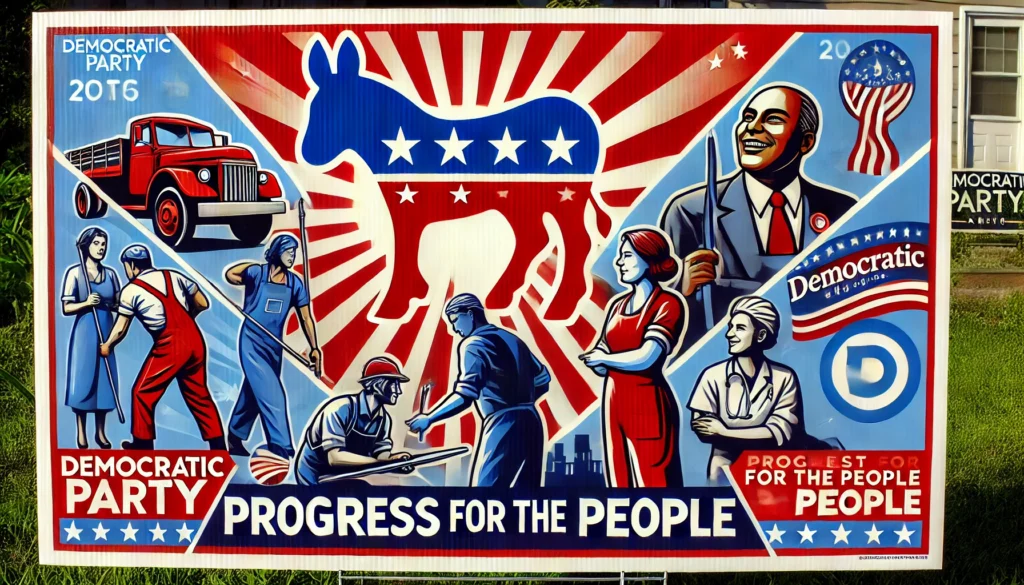
Originally posted 2024-09-28 15:45:28.
